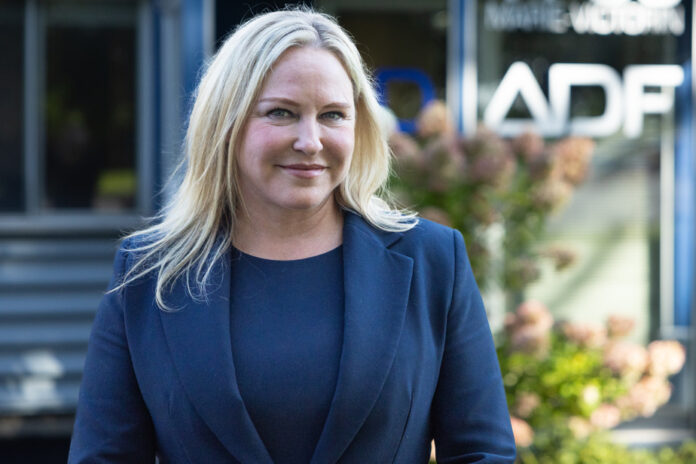Éloïse Harvey does not hide it, her ambition is to build with EPIQ Machinerie a large Quebec equipment manufacturer capable of competing with powerful European industrial groups. The CEO who bought the Mecfor company in 2018, based in Chicoutimi and which belonged to her father, did not hesitate to cede control to a financial partner to carry out her mission. The company now owns three factories in Saguenay, two in Saint-Bruno and three in Pune, India.
After obtaining a double bachelor’s degree in engineering and administration, Éloïse Harvey joined Mecfor in 1999, where she became the 12th employee of the factory which manufactured mechanical equipment for heavy industry, notably aluminum smelters and pulp and paper.
His father, Jeannot Harvey, had bought Mecfor a few years earlier to incorporate it into the Ceger group, his holding company made up of Cegerco, a construction company, and Cegertec, an engineering firm which was sold in 2018 to Stantec.
“The plan was for me to take over from my father in the holding company and run the group. We undertook a transition in 2007 which would lead me to take over as head of Ceger in 2017,” Éloïse Harvey explains to me.
“I met Pierre Marcouiller [the ex-CEO of Camso] and I told him about my ambitions. He advised me to look for a financial partner to be able to make acquisitions. I spoke with people from Solidarity Fund, Fondaction, Walter Capital and SeaFort Capital, the private investment fund of the McCain and Sobey families, and I decided to partner with them. »
SeaFort Capital is a patient investment fund which supports companies over the very long term and which has taken a majority position in Mecfor. Once the transaction was concluded, Éloïse Harvey completed a merger of equals in 2021 with Advanced Dynamics (AD), another heavy equipment manufacturer, based in Saint-Bruno.
“What interests me is more the potential of our company to achieve than its ownership. We were already working with AD on projects in the Middle East, we were complementary. We joined forces with the common vision of becoming the major equipment supplier for the aluminum industry in Canada,” summarizes the CEO of the company which became EPIQ Machinerie (Excellence, Performance, Innovation Québec) following this transaction.
When I met Éloïse Harvey, she had just returned from a whirlwind trip to India, where she went to mark ten years of the establishment of ADF, a division of EPIQ Machinerie which operates three factories in the city of Pune, south of Bombay (Mumbai) – not to be confused with the ADF company (Au dragon forgé) in Terrebonne.
“AD was a 50% partner of the Indian company Fafeco which became ADF. There, we have just increased our stake to 74% and we are now consolidating their income. ADF manufactures components for our equipment for us, but also serves the Indian market which is booming. We have three factories that employ 300 people and we are going to hire 300 more this year to meet demand,” explains the CEO.
EPIQ Machinerie has 140 employees in Saguenay, 160 in Saint-Bruno and 300 in Pune, and its sales are only increasing from 55 million in 2021 to 85 million in 2023 when they are forecast to reach 120 million in 2024.
“All our business sectors are growing, whether it is pulp and paper or aluminum smelters. We generate 70% of our revenues from export markets and 30% in Canada. We have a service office in the Middle East in Bahrain and another in France to serve Europe. There, we are aiming for an acquisition in the United States to bring us closer to our customers,” explains the CEO.
Having just returned from India, Éloïse Harvey participated last week in Deschambault, in the presence of the Minister of Economic Development, Pierre Fitzgibbon, in the inauguration of a new electric robot which will automate several operations at the factory of Alcoa and will make life easier for the workers who operate the molten metal furnaces.
“We developed this advanced guided vehicle with the Dynamic Concept company in Jonquière and we plan to implement it in other factories here, in Europe and the Middle East,” anticipates Éloïse Harvey.
EPIQ Machinerie’s development plan for the next ten years is simple: the company wishes to diversify by adding a third industrial sector to serve while continuing its strong organic growth.
“Our handling systems can be adapted to multiple factories. Each piece of equipment is tailor-made,” explains Éloïse Harvey.
The group wishes to consolidate the market, which is still fragmented, and establish itself as an international player capable of competing with large European groups.
Very involved in the Quebec entrepreneurial world, the CEO of EPIQ Machinerie admits to “tripping” about the business world. She sits on the board of directors of Investissement Québec and that of the Conseil du patronat du Québec.
“There is no reason to allow foreign companies to dominate the market in the heavy equipment sector. A Quebec company like ours that is innovative and efficient is capable of taking its place in this world,” assures Éloïse Harvey.















